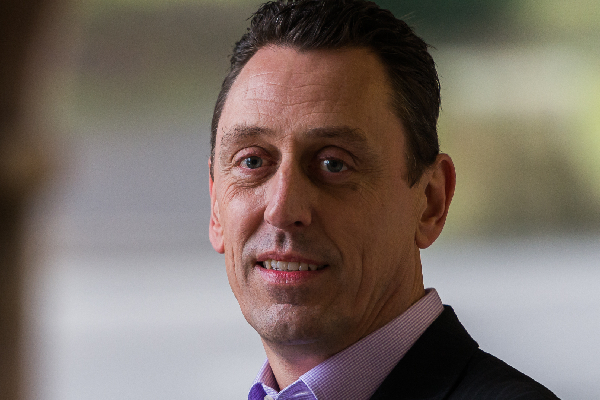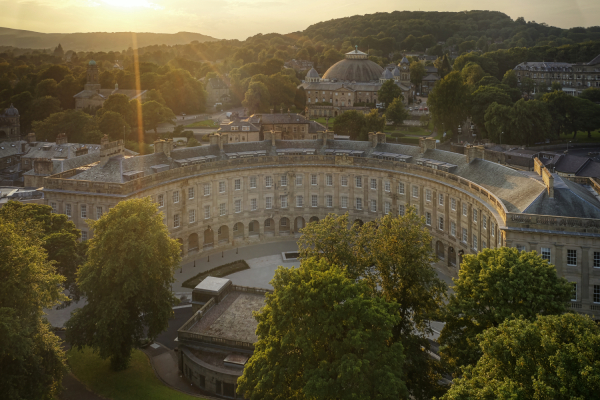Mark Hennebry has been instrumental in the creation of the Prague-based Ensana brand, tasked with creating the strategy for a diverse hotel portfolio and identifying an opportunity to create a new hotel brand dedicated to medical health spas.
The European health spa market is very fragmented with many small independent operators but few brands. With the global hot springs sector estimated to be valued at US$55 billion, it was clear that there was an opportunity to be an early mover in the sector. He set about recruiting a team of executives and in the summer of 2019, Ensana was launched. At that time, the brand had 26 properties and has since added two more with a potential pipeline that could significantly grow the size and geographic reach.
Hennebry, the chairman of Ensana Group today, set out the brand’s vision and mission to bringing together the disparate management teams spread across Europe. Then, COVID hit the sector just months after the brand was launched. His first priorities were the guests and the employees. All of the hotels were forced to close but the brand’s ethos carried through and as many jobs as possible were protected.
Even before the crisis, Hennebry was always visible, constantly travelling to the various destinations to meet with management to understand the challenges. He engages with everyone he meets and has generated a huge amount of respect from all levels of employees.
As one of the winners of HOTELS Top 10 Emerging Brands awards, Hennebry talked more about his challenges and opportunities in this Q&A.

HOTELS: What is the biggest challenge you face for growth?
Mark Hennebry: From a market sector perspective, the health spa sector could be considered as niche. The broader global wellness economy is estimated at US$4.5 trillion, while the thermal/mineral springs sector is estimated at US$54 billion. The challenge for growth is increasing consumer awareness of the proven health benefits of combining natural resources with medical knowledge.
H: What is the biggest opportunity to increase market share?
MH: Ensana is already the largest health spa operator in Europe. However, the opportunity lies in the very fragmented nature of the market. There are many thermal springs located across Europe, but many of them are either owned by local municipalities or are independent. The opportunity for Ensana is to pursue an asset-light strategy by offering management contracts to many of these spa hotels. The benefits of introducing an international brand to these types of properties has been amply demonstrated in the mainstream hotel sector.
H: Where do you look for and find inspiration today?
MH: Inspiration comes from seeing our guests’ health improve in response to their spa experience. We challenge ourselves to innovate and improve, creating a positive feedback loop.
H: What has been your biggest learn during COVID, and how you are applying it?
MH: While I have lived and worked through multiple recessions, currency crises, terrorism attacks and other global events, none of those episodes caused long term wide spread hotel closures. The lesson from this pandemic is that external events can massively disrupt businesses far beyond any downside scenario planning. The company’s long-term strategy has always been to have a strong balance sheet and that has ensured we have come through the crisis.
H: What are you reading today?
MH: An Anthology of Irish Working-Class Voices – this is a collection of 32 short stories written by established and newly emerging writers. The publication was crowd-funded to provide a platform for authors who may otherwise have found it hard to be published.

H: How are you further differentiating from your bigger competitors?
MH: We fuse local natural resources like thermal waters and muds with expert medical knowledge to offer treatments that support the health of our guests. While many brands offer a wellness experience, we offer a far more deeper and immersive experience that enhances the health of our guests. We have the widest collection of hotels located in Europe’s most historic spa towns, renowned for the healing properties of their natural resources.
H: How has COVID changed you as a professional, your management style?
MH: I don’t think the pandemic has made a significant change at the professional level. I do believe that it has further reconfirmed a core characteristic of resilience is necessary where global events occur with greater frequency and greater amplitude. The crisis has thrown a whole new set of challenges at our industry, but the key change has been the use of virtual meetings with the teams located across multiple regions. Hospitality is people centric and transitioning to remote management has been necessary, though not ideal. At the first opportunity I traveled out to spend quality time with local management and the positive contrast to virtual meetings has been extraordinary.
H: What do you want to accomplish not yet done?
MH: It has been a tremendous achievement to create the Ensana brand from scratch and with 25 spa hotels as our foundation, the next goal is to double in size in the coming years.

